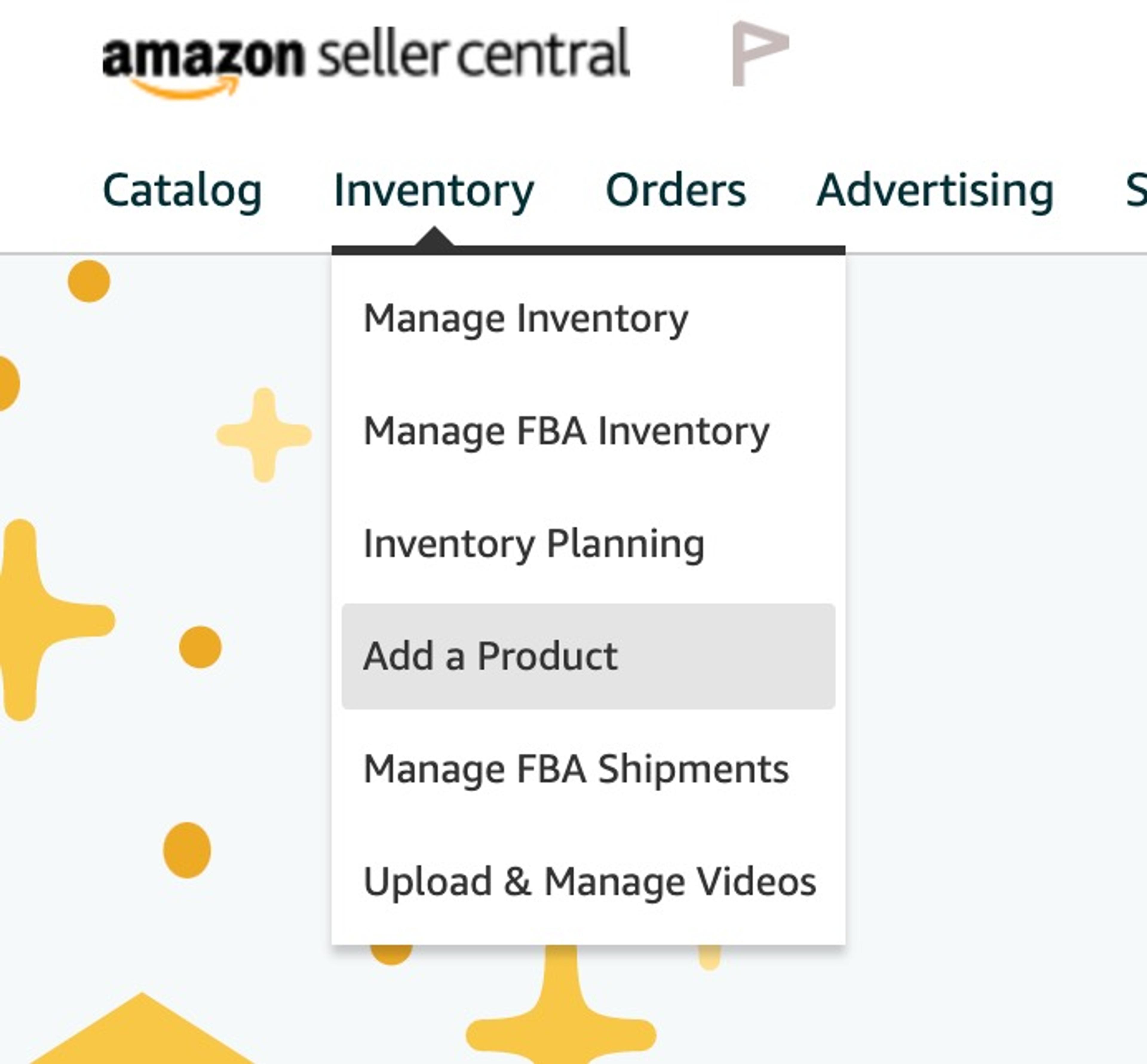/How to Limit the Competition and Sell in Amazon Gated Categories

How to Limit the Competition and Sell in Amazon Gated Categories
This is the ultimate guide to Amazon gated categories and how to overcome them.
So if you want to:
- Know which categories are gated
- Get ungated in all of them
- Learn how to get auto-approved
... this is the guide for you.
As many of you know, selling on Amazon can be a long and winding journey; It is easy to start, but hard to master. Along with the journey comes great experience as you learn from your mistakes and find new ways to become a better, more efficient Amazon seller.
One of the largest misconceptions new Amazon sellers have when starting is assuming he or she can sell any product or brand. The reality is, there are several categories and brands that Amazon place limitations on in order to restrict the majority of sellers.
Amazon specifically targets new sellers with many restrictions. These restricted markets on Amazon are called Gated Categories. Gated categories can discourage new sellers from joining Amazon, but you just have to be aware of what products and brands aren’t allowed to be sold.
Additionally, just because Amazon has placed these restrictions does not mean it will always be restricted from you. Even if you are a new seller, there are several categories that you can begin ungating yourself from.
Some categories are more difficult and require paperwork, others are extremely simple and have the chance for “auto-approval.”
Why Should You Care?
Amazon is currently the largest online selling platform. There are so many unrestricted categories, why should I care about the handful that are restricted?
It’s simple:
Oftentimes, it can be very difficult to find new profitable items to sell on Amazon. By selling products that require you to ungate, you are eliminating the competition of sellers who don’t want to bother with the hassle of unrestricting a certain product.
Certain markets can become saturated and you may find that one or more of your listings have accumulated more competition than you anticipated. More sellers on a listing usually translate to reduced profits in your pocket.
Once you learn to unrestrict your account you may soon instantly gain access to several markets with far less competition.
Why does Amazon Gate Certain Categories?
The first step in the process of ungating is understanding why exactly Amazon has certain categories restricted in the first place.
Amazon has a very consumer-centric view where protecting its customers is the number one priority. In order for Amazon to maintain its reputation they limit and verify the sellers of certain products.
By doing this, Amazon can reduce the risk of counterfeit goods selling on their site.
This practice is beneficial for all parties as consumers become more willing to purchase products on Amazon without thinking twice.
Think of eBay or other online marketplaces; you would usually double-check before purchasing an expensive item and only reserve your business to top-rated, history proven sellers.
Types of Amazon Gated Categories:
There are two types: Brand gates and Category gates.
Brand Gates
Brand gates can be more difficult to overcome as these brands have different motives for why they do not want people selling their goods on Amazon. Often times it can be but not limited to:
- Their items are often counterfeited
- Items are easily stolen from retail stores
- The brand doesn't want the perceived value to be decreased
- The brand is sold exclusively elsewhere
Ungating specific brands is usually more difficult. It oftentimes requires a direct relationship with the brand and sometimes a monetary fee.
Most of the time, Amazon must verify that you have written permission from the brands to sell their products. Here you can explore the list of Gated Brands.
Category Gates
Here is the list of Amazon Gated Categories for 2021:
- Automotive & Powersports
- Collectible Coins
- Entertainment Collectibles
- Fine Art
- Gift Cards
- Jewelry
- Music & DVD
- Major Appliances
- Sports Collectibles
- Streaming Media Players
- Video, DVD, & Blu-ray
- Watches
One rookie mistake to look out for is if you see a certain product is restricted, it may just be the specific brand and not the category. It is best to double-check.
Additionally, here is a list of prohibited categories.
More Types of Restrictions:
Subcategory restrictions
Less commonly there are subcategory restrictions. These restrictions are a little different than regular category restrictions.
Oftentimes, Amazon will leave certain categories unrestricted however a few subcategories require to be ungated before you can sell those types of products.
An example of this is Amazon leaving the Toys category unrestricted; however, they restrict the sale of learning game toys and building block toys.
The categories that you may experience Subcategory restrictions are in:
- Beauty
- Health & Personal Care
- Toys
ASIN restrictions
Another type of restriction Amazon places on sellers are ASIN restrictions. Some products may not be able to be sold on the basis of Amazon blocking specific ASINs. Amazon does this due to IP infringement concerns, product quality, or product safety.
Holiday Restrictions
During the Hectic Holiday season, Amazon includes more restrictions. These restrictions include anything in the Toys and Games category.
The good news is these restrictions only apply to sellers who Merchant Fulfill and aren’t able to meet Holiday Selling Guidelines. If you sell using the FBA program then you have nothing to worry about. Amazon only does this in order to reduce the chance of new sellers being late with orders.
Nobody wants their Christmas presents to arrive the day after Christmas!
However, if you’ve demonstrated past success with Merchant fulfillment you should be fine.
Product Condition Restrictions
Amazon includes restrictions on certain conditions of products in several categories. The following categories restrict the sale of used items:
- Baby Products
- Beauty Clothing, Accessories & Luggage
- Grocery & Gourmet Food
- Health & Personal Care
- Jewelry Shoes, Handbags & Sunglasses
- Toys & Games
- Watches
There is one caveat to this rule. Used Toys may be sold in Collectible Condition. Here is more information on specifics of Amazon’s condition criteria.
Okay, Now How Do I Ungate My Account?
Next thing you’re probably asking yourself. Okay now, how do I start unrestricting these Amazon gated categories?
The Process to apply for approval is:
Log in to Seller Central and BeginDo this by selecting “Add A Product” in the inventory link
Find the Application FormSearch for the item you want to sell and click the “Listing limitations” link next to the item.
Request Approval
Click the Request Approval button to begin the application process.

Next, request the approval...

Ungating your account doesn’t have to be complicated, many times it's far from it. If you are already a seasoned seller, chances are if you request approval for a restricted category you may automatically be approved.
Amazon mostly looks for you to be performing within their required targets.
These performance targets include a defect rate below 1%, pre-fulfillment cancel rate below 2.5%, and late shipment rate below 4%. Different categories also have different criteria that need to be satisfied.
Depending on the category, Amazon may request documented proof of where you source your goods. The documented proof is often an invoice from a wholesaler or distributor.
In order to meet Amazon’s guidelines, the order must be for 10+ units of the specific product you are attempting to ungate. Amazon may also request a letter of approval to sell from the manufacturer or brand owner, monetary fee and various documentations (LLC, Tax ID, Address, etc).

If you applied and get denied it is no big deal, especially if you are a newer seller. Just wait three to six months and reapply. Oftentimes it is because you are “too new” but once you have more sales under your account Amazon will approve you.
Special Requirements by Category
For the most part, category applications will only require you to present certain business information, an invoice or just meet Amazon’s Required Performance Targets.
On the other hand, other categories become more complicated. Here is a list of the more complicated categories and their requirements.
You may find additional guidelines here.
Fine Art
Already have been an established art dealer with three years of experience
Have a professional working website of your brand with an established presence
Fine Jewelry
Already Be Established (Must have at least 50k in annual revenue)
Pay Amazon’s Fine Jewelry $5000 entry fee
Submit your products for Amazon’s Quality Assurance Testing
Wine
Be registered as a domestic winery, importer, or wholesaler with retail sales privileges
Watches
Must List all Watches with manufacturer’s UPC code
Have methods for testing pre-owned watch accuracy and water resistance
Kindle Accessories
Be prepared to pay 45% sales fees on Kindle products.This may not necessarily be bad, bigger fees = less competition
Collectible Coins
Maintain Proper Memberships with one of the Coin Collecting Organizations:PNG, ICTA, PCGS, or NCC/PMG
Have at least 70% of your coins gradedAny coin valued at $1500 or greater must be graded
Must set up an Anti-Money Laundering Program
Must have a website
Automotive and Powersports
Have your own Website
Use Compliant Product Images
List with Proper UPC Codes
All Certified Refurbished product parts must be warranted by the manufacturer
Must have reviewed Part Finder and Fitment Data page
Categories Amazon isn’t accepting any more applications (at this time)
Textbook Rentals
Giftcards (Unless you are the company the gift card is for)
Categories that are incredibly easy to Ungate (Common Auto-Ungate Chance)
- Sexual Wellness
- Collectible Books
- Clothes, Accessories & Luggage
As long as you have an eCommerce store with a working shopping cart
(incredibly easy nowadays with handy templates)
Auto-Approval
As your Seller Central account "ages", Amazon will increase its trust in you. In doing so, you'll find that you're auto-approved immediately after requesting the ungating on many categories and brands moving forward.
From personal experience, this begins roughly 6 months and over $100,000 in annual sales.

The "Prohibited Product Claims" Policy
Amazon is very strict when it comes to managing expectations for their customers. The Pohibited Product Claims Policy protects them from sellers setting false expectations.
An example would be showing a 3-pack in the featured image on a listing but the actual product only contains a single unit.
As a best practice, Amazon's policy followed the Federal Trade Commission's regulations. Specifically, it targets the "unfair or deceptive" advertising.
In parallel with the above issues, the Prohibited Product Claims Policy also states that Amazon bans products tha advertise they can "cure, mitigitate, treat, or precent diseases in humans or animals without FBA approval."
It's highly recommended that you read through and better understand the FTC's "Green Guides", which further break down the details.
Consiquences of violating Amazon's restrictions
You may find yourself tempted to break the rules or try "gray hat" tactics to avoid them. Don't as these tactics could put your business at risk.
Amazon has a long list of reactions but the most common are the following:
- Amazon could delete / cancel your listings
- Amazon may apply further limits as to what you can list
- Amazon could take away your ability to list new products
- They could suspend your Seller account entirely
Is selling restricted products worth it?
That depends. For more experienced sellers, it should be a non-issue. For those brand new sellers learning how to work through the system of selling on Amazon and understanding the rules of the game, you may want to consider holding off a bit longer.
If you're an Amazon seller that is detail oriented and focused on doing the right things, you shouldn't have any issues. Do keep in mind that these categories offer a ton of new opportunity but should be handled with care.
Like most things in business and life, focus on areas where others may have a harder time succeeding.


